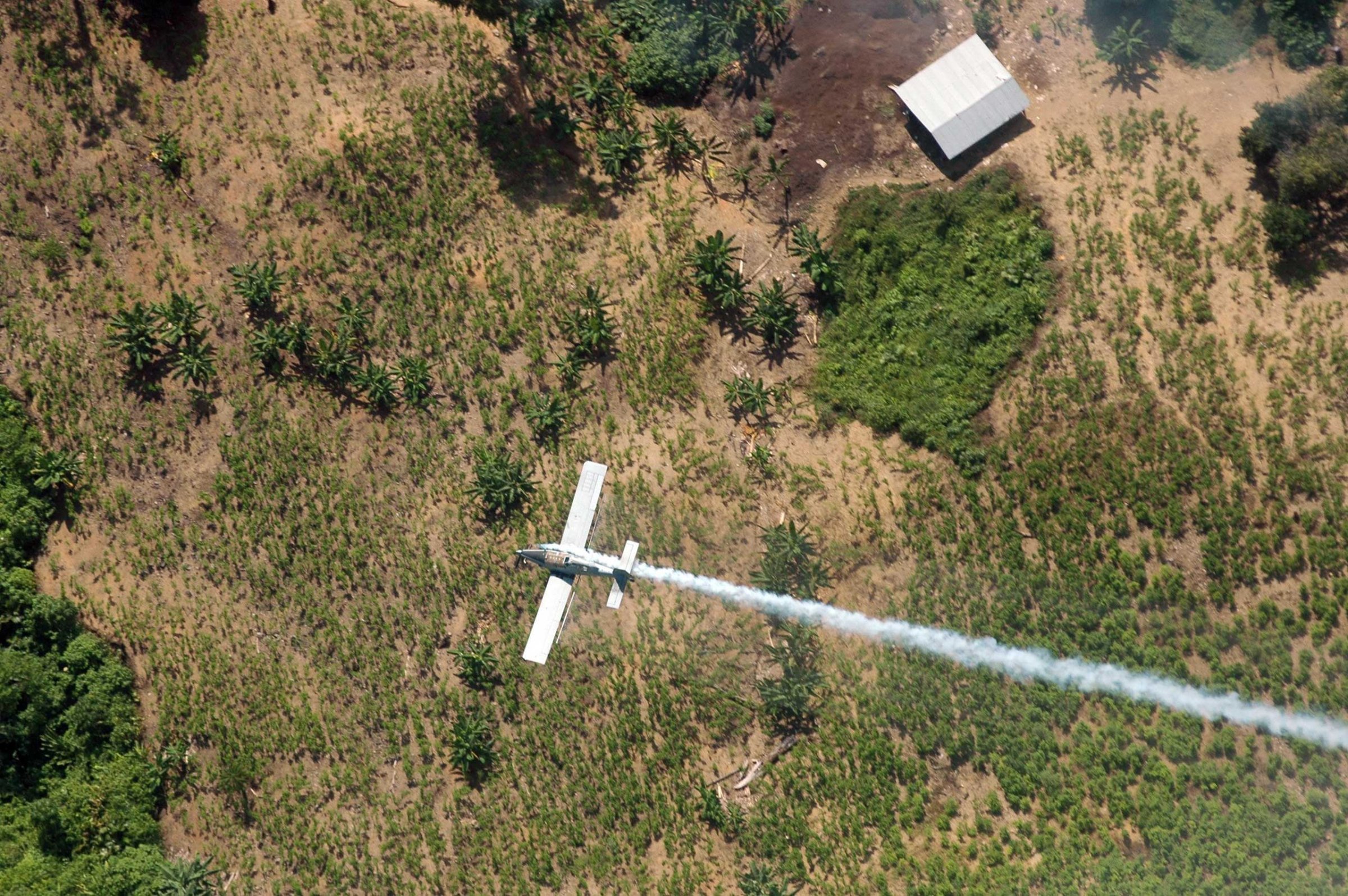
Colombia’s government ordered a halt Thursday to the use of a herbicide that has formed a major part of U.S.-backed efforts to wipe out cocaine crops in the country, the Times reports.
The country’s Health Ministry had cited concerns after the World Health Organization reclassified the weed-killer glyphosate as a carcinogen (a cancer-causing substance) in March. The U.S. Environmental Protection Agency’s 2012 report disagreed, saying there was a lack of convincing evidence that the herbicide causes cancer in humans.
Over the past two decades over 4 million acres of land in Colombia have been sprayed with the herbicide, which kills coca plants (whose leaves are used to make cocaine).
The change in strategy may put a strain on Colombia’s relationship with the U.S. for the first time, as the two countries are usually close allies when it comes to a hard-line approach in the war on drugs. But earlier this month, a White House survey found that the amount of land in Colombia used to grow coca increased by 39% last year
Peru and Bolivia are the two other main cocaine-producing countries, but both avoid chemical herbicides, opting for a more labor-intensive manual eradication instead. This is riskier in Colombia, where the rebel guerrilla fighters have long protected coca crops.
Read More: Experts Fear Surge in Cocaine Supply to U.S. as Colombia Mulls Ending Coca Eradication
More Must-Reads from TIME
- Cybersecurity Experts Are Sounding the Alarm on DOGE
- Meet the 2025 Women of the Year
- The Harsh Truth About Disability Inclusion
- Why Do More Young Adults Have Cancer?
- Colman Domingo Leads With Radical Love
- How to Get Better at Doing Things Alone
- Michelle Zauner Stares Down the Darkness
Write to Naina Bajekal at naina.bajekal@time.com